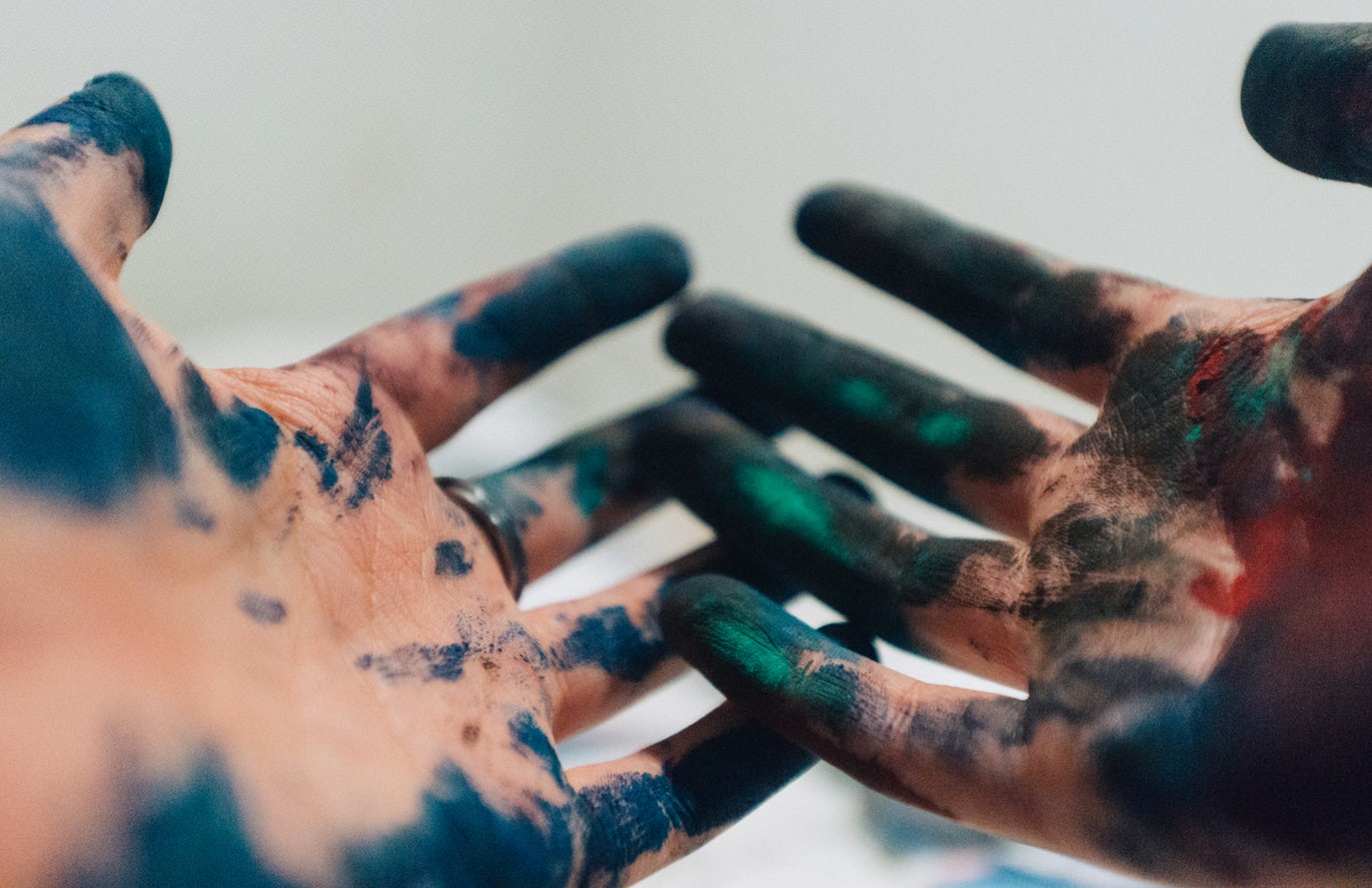I am often asked how to price my artwork; Am I getting ripped off?

Wayne Adnreason: Will work for food?
To price my artwork and to get ripped off are 2 different things. Getting ripped off is when one of the parties in the agreement, doesn’t deliver on their end of the bargain. That can does happen. And if that happens to you, then yes, you are being ripped off.
If you agree to paint an illustration for $10 dollars, like for a friend or family member, and you end up spending way too much time on it and it was harder than you thought it would be, and you ran out of pthalo green paint and ruined your moms carpet in the process, you might feel like you were under paid. And you were, but you were not ripped off. Well you were ripped off, but only by your lack of ability to negotiate a fair price. Even then, you gained some education so you may have gotten the better end of that deal too.
How can I avoid being ripped off, I mean, price my artwork for a fair price?
You can’t get ripped off if you have negotiated the price. In this case, you feel ripped off if you are not being compensated for you time and effort. So first of all, set the price where you would agree to do it. You can allow yourself to be under paid, but that is bad negotiation and you are only being ripped off by yourself. You should want to make money as an artist, so it is important to figure this out.
When i price my artwork, I like to identify my motivation.
- Is it a service project, like for a family member or a friend?
- Is it a job you want to do for the money? Hey, we all need money. Some people will say that that is a sellout, but that is for another discussion.
- Or is it for a portfolio piece. Every piece should be considered a potential portfolio piece. Until it just doesn’t turn out, then you can sneak it into the trash like most of my figure drawings.
Family and friends seldom understand the value of your art
If it is for a friend or family member, you will probably be under paid. They don’t understand the time it takes and especially THE TIME AND EFFORT IT TOOK to develop the talent. You are not being paid for the time you spend on your artwork, but for the years of practice and learning and developing your skill, so you could create such beautiful artwork.
How can I price my artwork for family and not be ripped off?
First of all, before I even look at what they want me to do, I say, “you probably won’t be able to afford me.” Even in a joking manner that helps them realize that you probably won’t do it for free. And I like to say that I can do anything that they can afford.
Then I take a look at what they want and tell them I’ll get back with them. Especially if it is something I would like to do.
Then play the price my artwork game
I ask myself these kinds of questions. First, would I do it for free? Probably not. Would I do this piece for free for a stranger? NO! Would I do it for $200? How about $500? $1000, $5000? One million dollars? Find the price where you would gladly do it. If it is a commission you know you are going to hate, the price should be higher. You may hate it but at what price would it be worth it?
Pad the price
Once you have that amount in mind, add 10% or 20% or even double it. This helps if you run into problems like running out of pthalo green or if you have to replace your mom’s carpet. And besides, you can always cut them a deal after you have finished if you feel you were paid too much. No one will be angry if you say “Hey, that was a lot of fun and it went smoother than I thought it would, and besides, I am Just not that valuable as an artist, so here is some of your money back.”
Now you negotiate with them for the final price
This can be the hard part, but it’s a crucial conversation and you need to get good at it.
So you say, “Friend, (or family member) I would do that for X amount of dollars.” Now they will probably think that they are being ripped off. Remember, you are not ripping them off if they agree to it. You may be asking more than they feel it is worth, but you are negotiating, not steeling. Let them know that that is what you do, and you need so much money to survive. Since you would be willing to do it for less, you can how negotiate down a bit. Give them the Friends and Family discount. Remember, you are negotiating here. If you have padded the desired amount you can come down if you choose, on the price. You can say, maybe we can simplify it, or something. Let them know that you want to help them but it needs to be worth it for both of you. Win win. But you need to let them know you can’t afford to spend days working for peanuts.
Don’g Give Away Your Artwork
Only you can know determine what you would do a certain job for, or what it’s worth to you. Some would like the government to do make that decision for them, and mandate certain rules and laws for all of us citizens that should be capable of deciding for ourselves what our time and talent is worth. That too is another discussion.
It is a good rule of thumb for artists, to NEVER give artwork to fam and friends. Because if you do, you will have set a price, you will have demonstrated that your artwork has no value. Let them pay a fair price for it, and they will know it has value and they will value it. It is more likely to be framed and hung up if it cost something too . Did I say never? Well there are times to give it away, so I didn’t mean NEVER, literally. Rule of thumb.
You may be working to learn, or just trying to build you portfolio, get published or maybe you love charity. In fine, you are not being ripped off, but you may be under cutting yourself.
~Wayne of Folio Academy, art lessons online.






